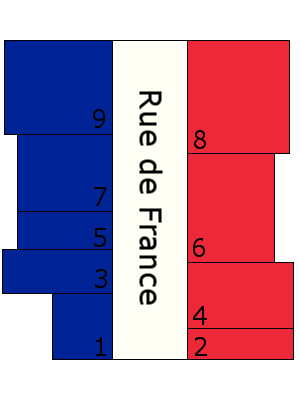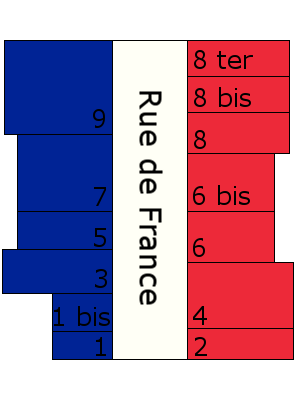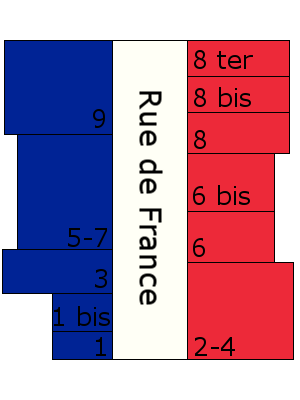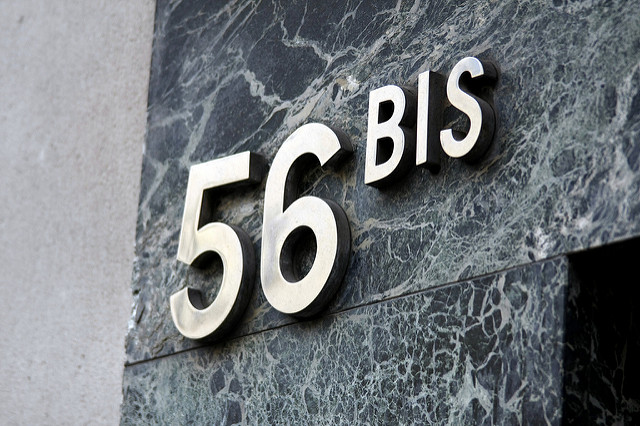Two Front Doors! – Special French Addresses Posted by John Bauer on Jun 15, 2016 in Culture, Vocabulary
Using La Poste and knowing what your adresse is solves most of your mail related problems in France. There is however another aspect of French addresses that I did not understand for a very long time.
Sometimes une adresse has a number followed by the word bis.
I didn’t know what the bis meant until I realized that the bis in those addresses is the same bis in une année bissextile! It means it’s the same as the previous number! In the photo above that means a second 56. However, that didn’t help me understand why there would ever be a second 56.
Eh bien (well), it has to do with how what counts as une parcelle (a plot). When une rue (a street) is made, each parcelle is given a number representing its adresse.
Les parcelles are numbered according to local laws in regards to which end has the lower numbers and which side of the street uses les nombres pairs (even numbers) and which side uses les nombres impairs (odd numbers).
Cela dit (that said), once la rue is already built and les parcelles already have their numbers, they can still be split. What was originally une parcelle with une adresse could become multiple parcelles that each need une adresse.
All those new parcelles have the same street number, but have a special mention (distinction), either an a, b, c… or bis, ter, quater…
Similarly, if someone buys multiple parcelles that each have different street numbers, a new one is created that combines their numbers. So what was numbers 1 and 3 would become 1-3.
Vous êtes perdus ?
Are you lost?
It’s a little confusing, so lets take a look at a simplified example.
Imagine a Rue de France, une rue imaginaire (an imaginary street) that only has 9 parcelles:
 One day some of the owners decide to scinder (split) their parcelles creating new addresses on the street:
One day some of the owners decide to scinder (split) their parcelles creating new addresses on the street:
 Each new parcelle has its own unique adresse. 1 bis Rue de France is different from 1 Rue de France.
Each new parcelle has its own unique adresse. 1 bis Rue de France is different from 1 Rue de France.
Then someone decides to buy multiple parcelles and turn them into a single unit, creating more new addresses on our Rue de France: The new 2-4 Rue de France and 5-7 Rue de France have distinct addresses.
The new 2-4 Rue de France and 5-7 Rue de France have distinct addresses.
It can be a little difficult to understand, but you won’t get confused when someone says:
J’habite 8 bis Rue de France !
I live on 8 bis Rue de France!

Build vocabulary, practice pronunciation, and more with Transparent Language Online. Available anytime, anywhere, on any device.





Comments:
J:
Does ter refer to ground floor and quatre to a fourth division?
John Bauer:
@J Ter refers to a third division and quater a fourth division.
Although counting floors can also be quite confusing!